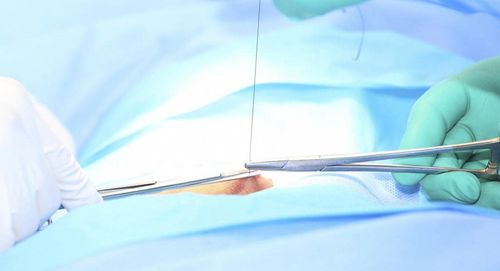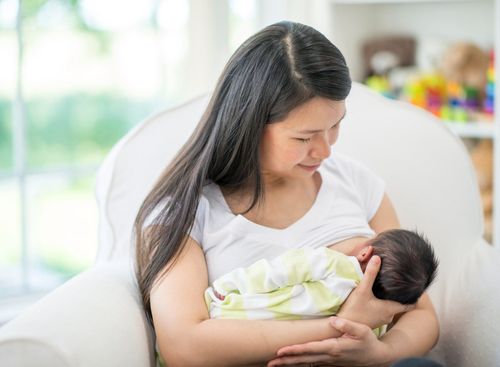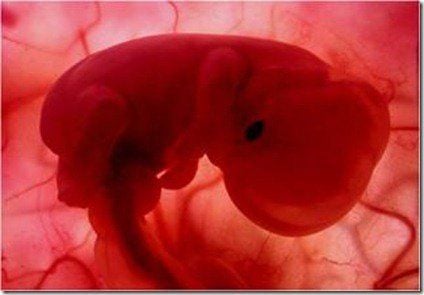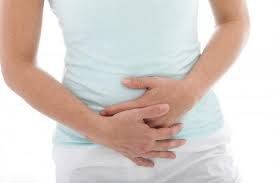This is an automatically translated article.
Lower abdominal pain during pregnancy can occur for many reasons. The timing of lower abdominal pain is also not fixed, with some pain in the first week or first month of pregnancy. Others appear in the middle or last months.1. Causes of lower abdominal pain during pregnancy
1.1 The placenta is separated from the uterine wall During the formation and development of the fetus, the placenta is always firmly attached to the uterine wall. Thanks to the placenta, nutrients are transmitted through the umbilical cord to nourish the fetus. The baby will directly receive the nutritional groups that the mother absorbs quickly.Abortion of the placenta from the uterus is a rare condition. When this phenomenon occurs, it will cause the mother's death to be stiff and painful. You should pay attention if you have lower abdominal pain in the first month that does not decrease or persists.
Usually placental detachment occurs only after you have given birth. If this phenomenon occurs as early as 32 weeks, the risk is extremely dangerous. At the same time, premature placental abruption can present serious complications to the health of both mother and baby. Fortunately, according to statistics, only 1.5% of all pregnant women in the world suffer from this syndrome.
1.2 Pregnant women with indigestion Psychology and habits during pregnancy are greatly affected by hormones. However, you still need to maintain healthy eating habits throughout your pregnancy. The body will have higher nutritional needs to ensure enough supply for both mother and baby.
When the fetus grows in size, it will put pressure on the mother's digestive system. Therefore, during pregnancy, you need to provide a lot of fiber to avoid constipation or indigestion leading to lower abdominal pain,
Besides, increased progesterone levels make food move slower to the digestive system. So the compression increases and leads to lower abdominal pain during pregnancy.
1.3 Rapid body weight change It is normal to gain weight during pregnancy; Especially when entering the 16th week of pregnancy, at this time the baby has grown and developed quite well, so the pressure on the abdomen causes more obvious pain.
1.4 The baby kicks with great force The kicks marking the development of the fetus will make the mother ache at that time.
Although this is a normal physiological phenomenon, it causes many difficulties for pregnant women.

Đau bụng dưới khi mang thai có thể do nhiều nguyên nhân
What's more, the connective tissue around the pelvis can be stretched to its full capacity to support as the fetus grows. The best way to deal with this situation is to take some time off. If the pain persists, you can try massage or heat to relax.
1.6 Mother has urinary tract infection According to statistics, the number of urinary tract infections accounts for 10% during pregnancy. When suffering from this symptom you will feel: Pain when urinating, pain in the pelvis and lower abdomen. Urinary incontinence, foul-smelling or bloody urine.
Urinary tract infections not only cause lower abdominal pain during pregnancy, but also increase the risk of premature birth. That's why doctors attach great importance to pre-pregnancy screening tests.
1.7 Some women have gallstone disease which can cause lower abdominal pain Gallstones in women will appear when you are overweight and over 35 years old. Others with a history of the disease also have an increased risk of recurrence. Cholecystitis is quite serious and causes abdominal pain. If not treated promptly, it can lead to spreading the pain to the lower back or shoulder blades.
1.8 Pregnant women with lower abdominal pain due to appendicitis Appendicitis during pregnancy is not only difficult to identify but also potentially dangerous to health. With the development of the fetus, the position of the appendix is pushed higher. Inflammation will lead to loss of appetite, vomiting.
1.9 Pregnancy in the wrong position The phenomenon of pregnancy not in the uterus is very dangerous. It is usually diagnosed and treated early in the first few weeks. If not detected in time, it can seriously threaten the life of the mother.
Therefore, pregnant women should pay attention to early antenatal care when detected. At the same time, have regular check-ups and complete tests. Please follow the doctor's orders and instructions to be detected early to reverse this risk. Some common ectopic pregnancy signs for first-time mothers to refer to are abdominal pain and vaginal bleeding.
1.10 Dangerous complications in pregnancy Pregnant women will face the risk of developing preeclampsia. Diagnosis of this syndrome is usually through blood pressure at 20 weeks, urinalysis, and examination of several organs. This symptom will appear persistent and lead to vision changes
In addition, pre-eclampsia also has some symptoms such as: Shoulder pain, headache, nausea, shortness of breath, swelling of the limbs, .. Passive smoking is also listed as one of the causes of preeclampsia in pregnant women.
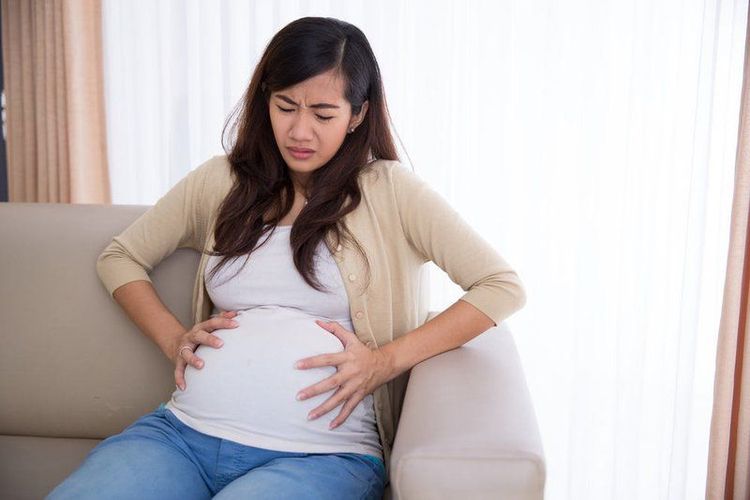
Tiền sản giật có thể khiến mẹ bầu bị đau bụng dưới khi mang thai
2. Instructions on how to relieve lower abdominal pain during pregnancy
As long as you don't have any medical problems or dangers, you can apply some tips to reduce lower abdominal pain during pregnancy. Do gentle exercise to regulate breathing to help blood circulation. Take a warm bath to relax and unclog blood vessels. Move the person towards the area of intense pain, drink plenty of water every day, rest year.Some symptoms of lower abdominal pain during the first week of pregnancy are dangerous for pregnant women. Others are due to changes in the body. Therefore, you need to determine the cause of abdominal pain during pregnancy. If you need help, contact your doctor for advice.
To protect mother and baby's health comprehensively, Vinmec International General Hospital now has a full maternity service, with a team of highly qualified doctors, ultrasound system, and medical equipment. Modern equipment will promptly recognize abnormalities during pregnancy, help monitor the health of mother and baby right from the beginning of pregnancy, early detect and intervene in time health problems.
In addition, at Vinmec, we also perform intensively Double Test or Triple Test tests to screen for fetal malformations; Quantitative angiogenesis factor test to diagnose preeclampsia; thyroid screening test; Rubella test; testing for parasites that are transmitted from mother to child, which seriously affects the baby's brain and physical development after birth...
After birth, the baby will be cared for in a sterile room before being brought back back to mom. Pregnant women will rest in a high-class hospital room, designed according to international hotel standards, 1 mother 1 room with full facilities and modern equipment. Mothers will be consulted by nutritionists on how to feed the baby before being discharged from the hospital. Postpartum follow-up with both mother and baby with leading Obstetricians and Paediatricians.
Please dial HOTLINE for more information or register for an appointment HERE. Download MyVinmec app to make appointments faster and to manage your bookings easily.





